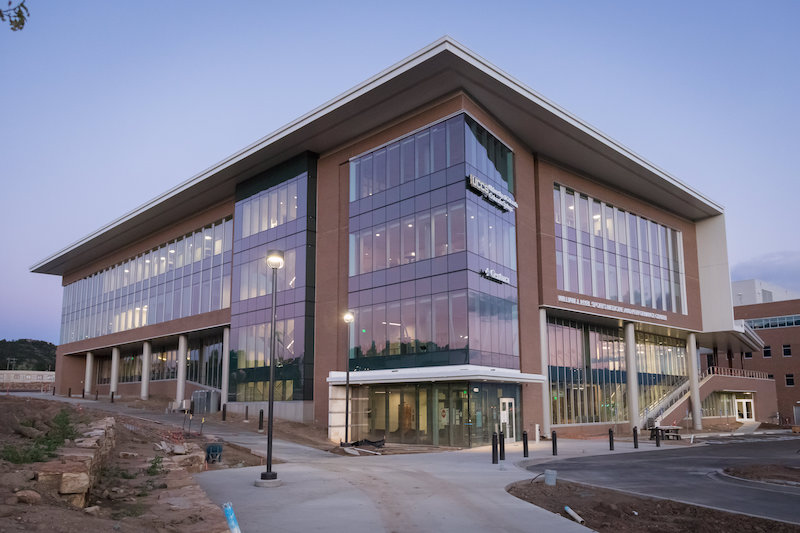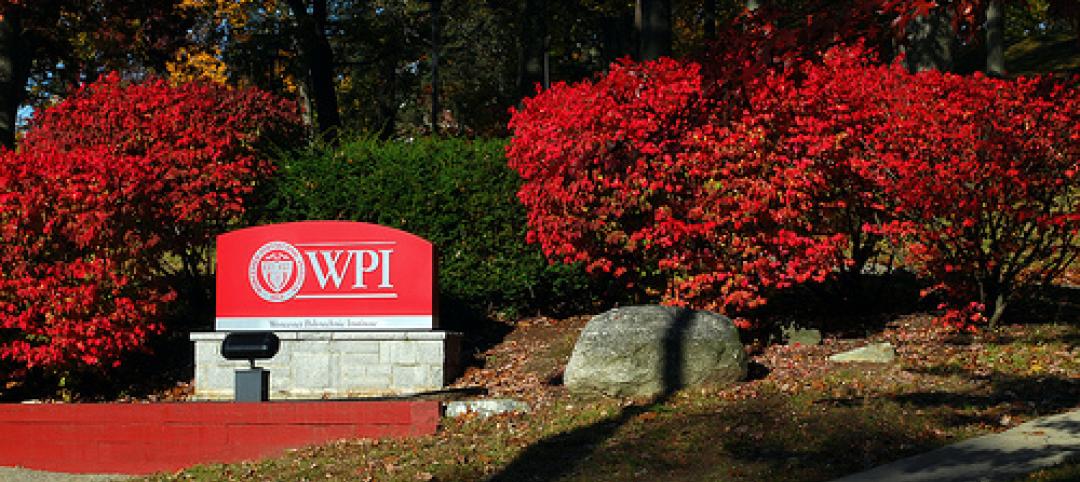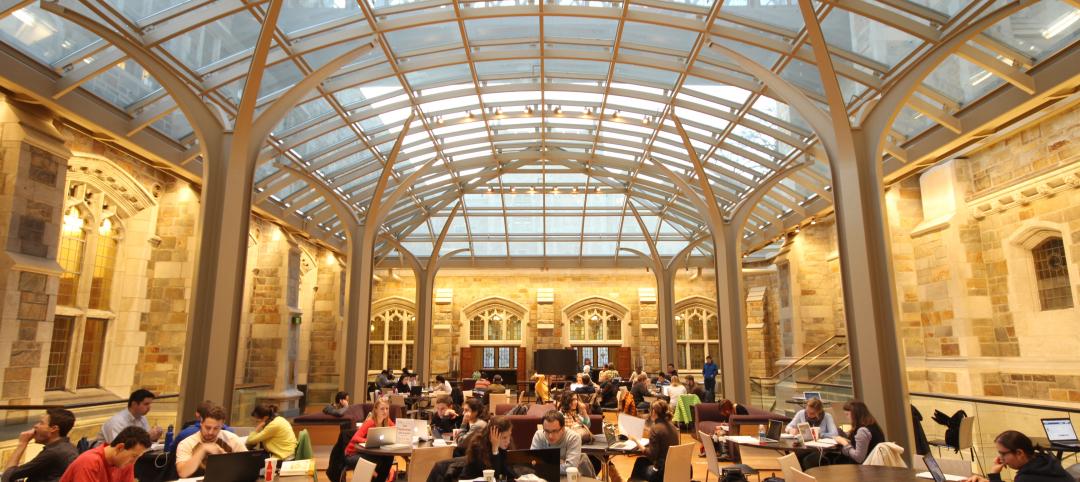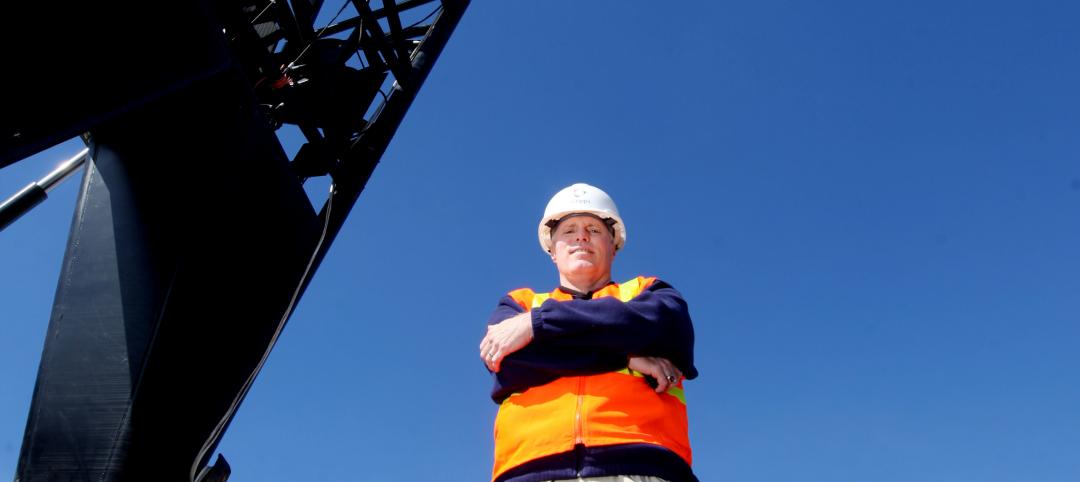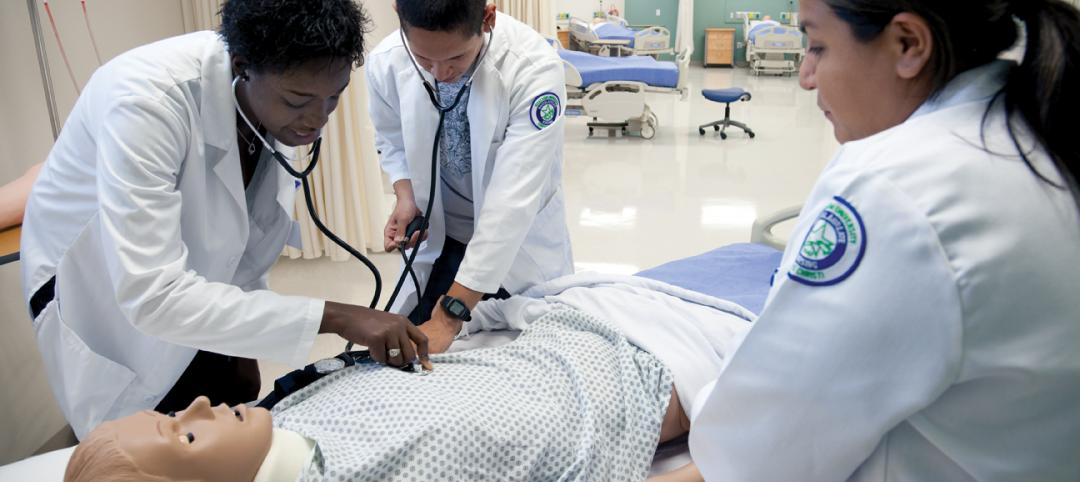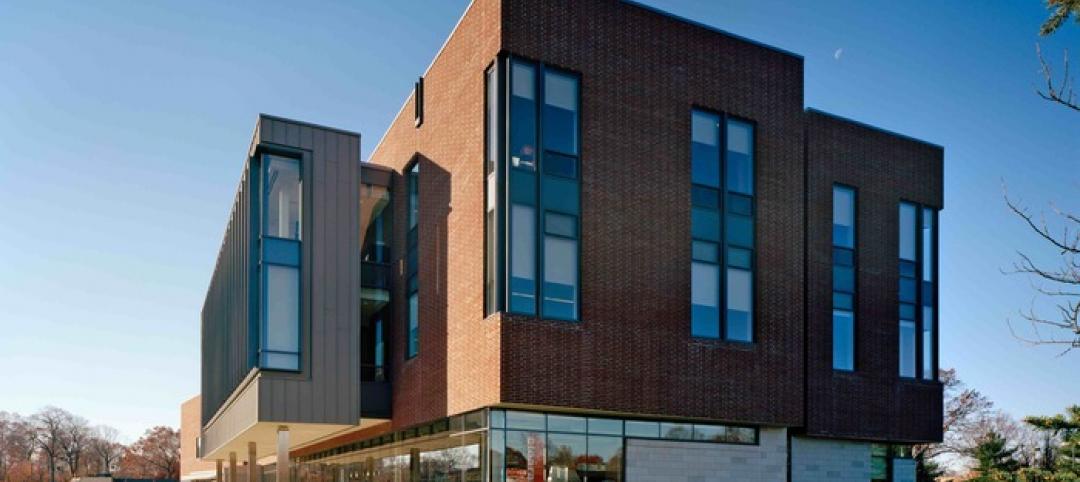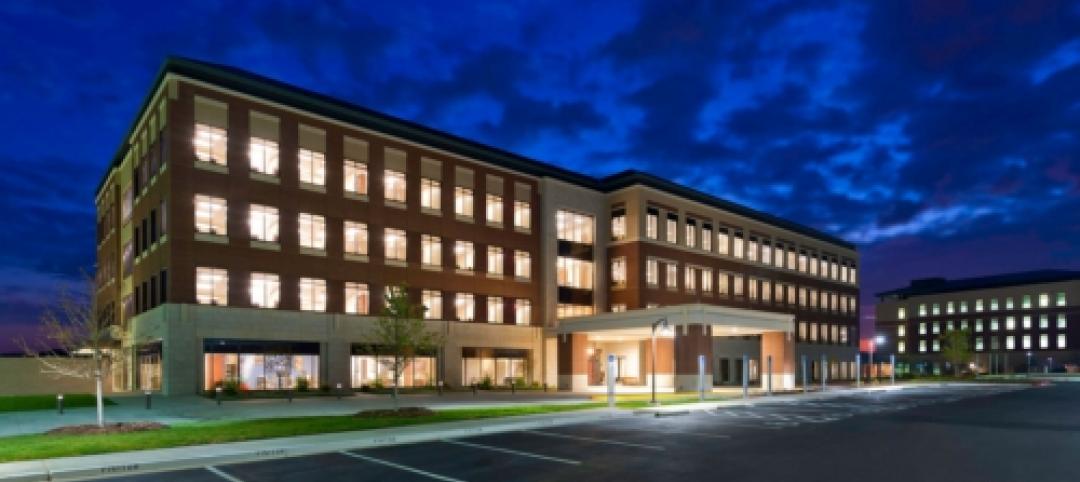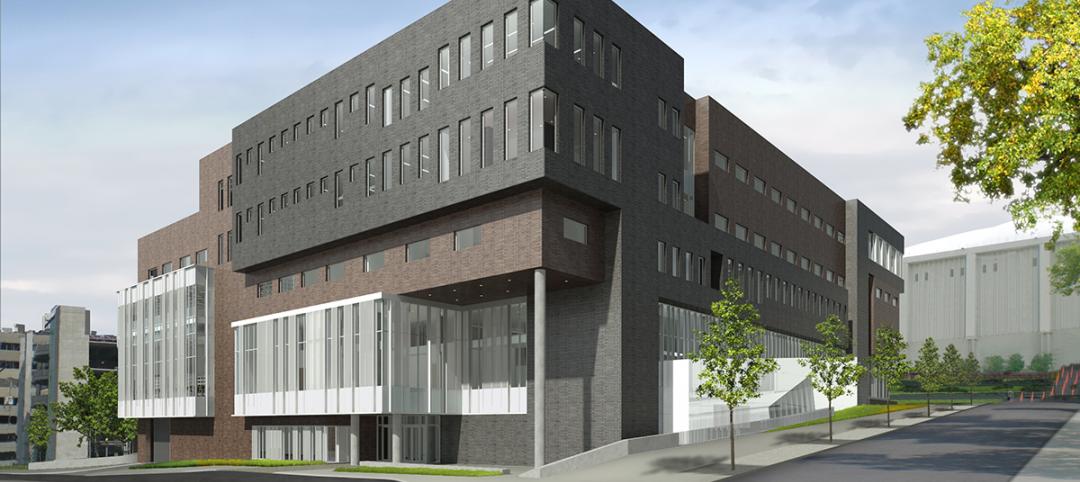The William J. Hybl Sports Medicine and Performance Center, located on the University of Colorado Colorado Springs campus, is a first-of-its-kind facility designed with “collision spaces” meant to create collaboration between medical doctors, faculty researchers, and students.
Designed by HOK and RTA, the project will bring together students and faculty for education and research with the medical providers and clinical experts at Center Penrose-St. Francis Health Services. The facility makes use of a large amount of glass and open space to enable the “collision” philosophy.
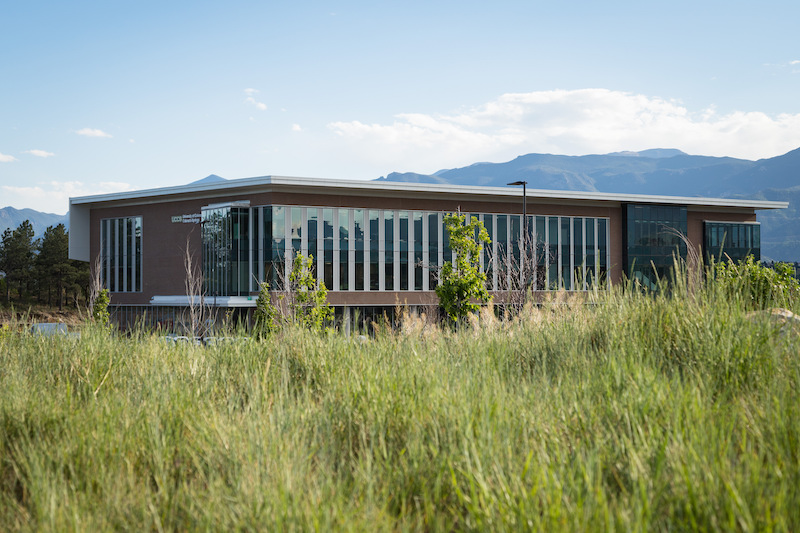
Students, faculty, clinicians, doctors, patients, and athletes will have access to a collection of equipment rarely found in a single facility. This equipment includes:
• An altitude chamber that is able to transport users from a sea level atmosphere to the heights of the Himalayas;
• An environmental chamber that allows control of altitude, temperature, and humidity;
• A nutrition laboratory and kitchen that optimizes the fuel needed for athletes of all skills and abilities;
• A biomechanics laboratory that permits enhanced study of movement;
• Specialized equipment that allows athletes with physical disabilities and tactical athletes like firefighters and police officers to train;
• A sports medicine clinic that allows medical providers to see patients; and
• A sports performance clinic that helps athletes to train and optimize achievement.
See Also: The New City project by Eric Owen Moss Architects receives AIA’s Twenty-five Year Award
HOK and RTA established an integrated team to design the facility. J.E. Dunn was the project's general contractor. The William J. Hybl Sports Medicine and Performance Center is expected to achieve LEED Gold. The Center fully opened on Aug. 24, 2020.
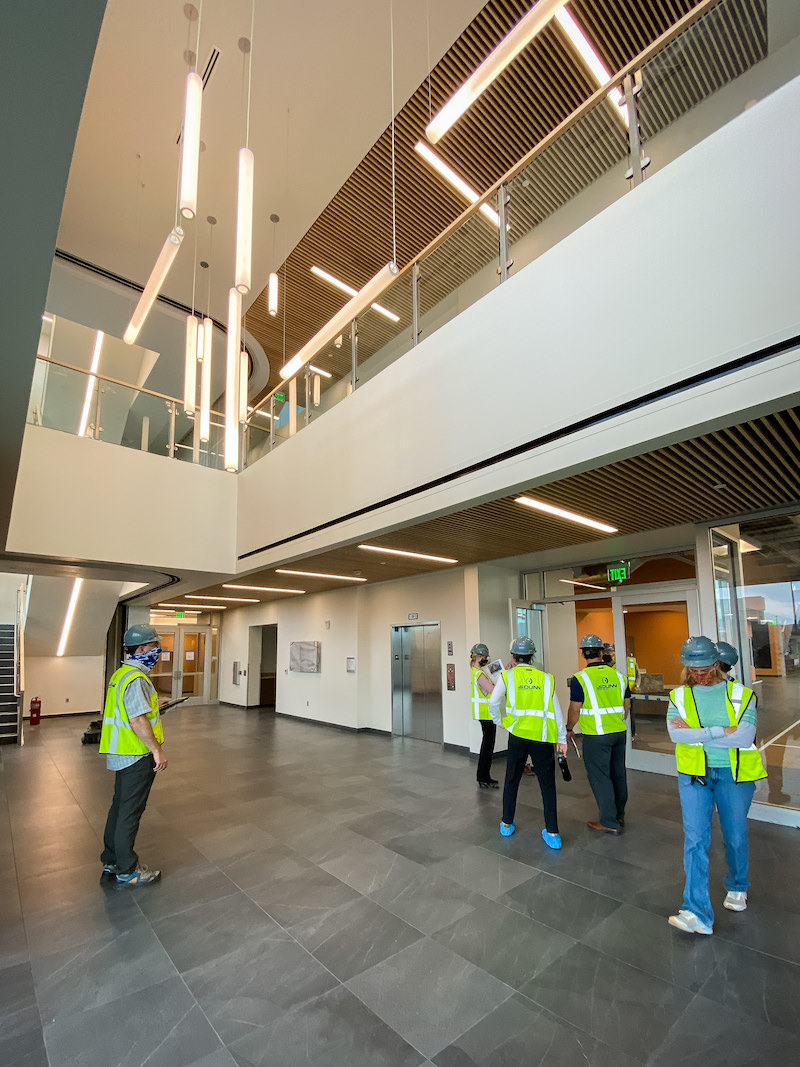
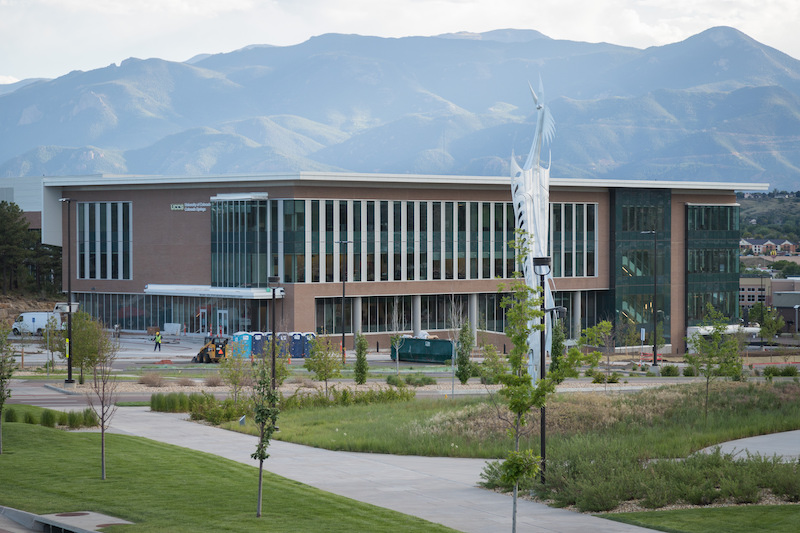
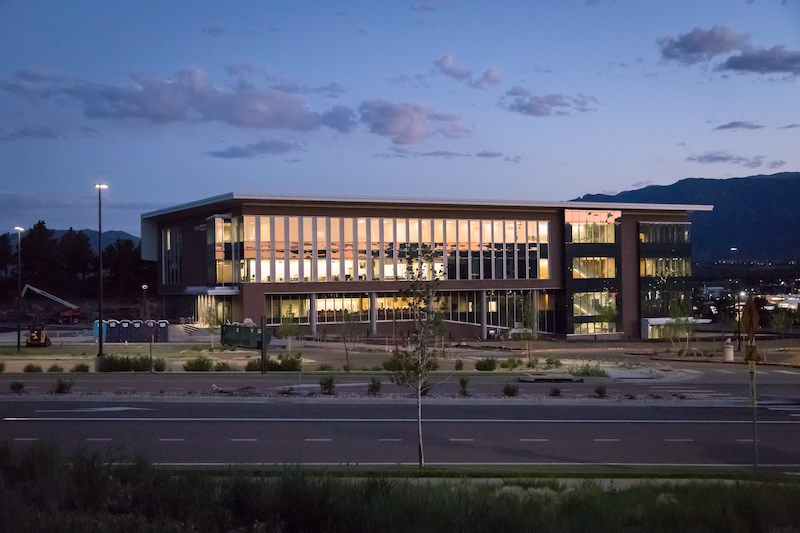
Related Stories
| Feb 6, 2012
Siemens gifts Worcester Polytechnic Institute $100,000 for fire protection lab renovation
Siemens support is earmarked for the school’s Fire Protection Engineering Lab, a facility that has been forwarding engineering and other advanced degrees, graduating fire protection engineers since 1979.
| Feb 2, 2012
Fire rated glazing helps historic university preserve its past
When the University embarked on its first major addition since the opening of Hutchins Hall in 1933, preserving the Collegiate Gothic-style architecture was of utmost importance.
| Feb 2, 2012
Next phase of construction begins on Scripps Prebys Cardiovascular Institute
$456 million Institute will be comprehensive heart center for 21st Century.
| Feb 1, 2012
Two new research buildings dedicated at the University of South Carolina
The two buildings add 208,000 square feet of collaborative research space to the campus.
| Jan 31, 2012
Fusion Facilities: 8 reasons to consolidate multiple functions under one roof
‘Fusing’ multiple functions into a single building can make it greater than the sum of its parts. The first in a series on the design and construction of university facilities.
| Jan 27, 2012
BRB Architects designs new campus center for Molloy College
Intended to be the centerpiece of the College’s transformation from a commuter college to a 24-hour learning community, the “Public Square” will support student life with spaces such as a café, lounges, study rooms, student club space, a bookstore and an art gallery.
| Jan 19, 2012
BOKA Powell-designed facility at Texas A&M Bryan campus
The new facility provides programs for the Texas A&M Health Science Center, the Texas Brain and Spine Institute, Mary Crowley Cancer Research Centers, and Blinn College Allied Health programs.
| Jan 4, 2012
Shawmut Design & Construction awarded dorm renovations at Brown University
Construction is scheduled to begin in June 2012, and will be completed by December 2012.
| Jan 3, 2012
New Chicago hospital prepared for pandemic, CBR terror threat
At a cost of $654 million, the 14-story, 830,000-sf medical center, designed by a Perkins+Will team led by design principal Ralph Johnson, FAIA, LEED AP, is distinguished in its ability to handle disasters.
| Dec 20, 2011
Gluckman Mayner Architects releases design for Syracuse law building
The design reflects an organizational clarity and professional sophistication that anticipates the user experience of students, faculty, and visitors alike.


